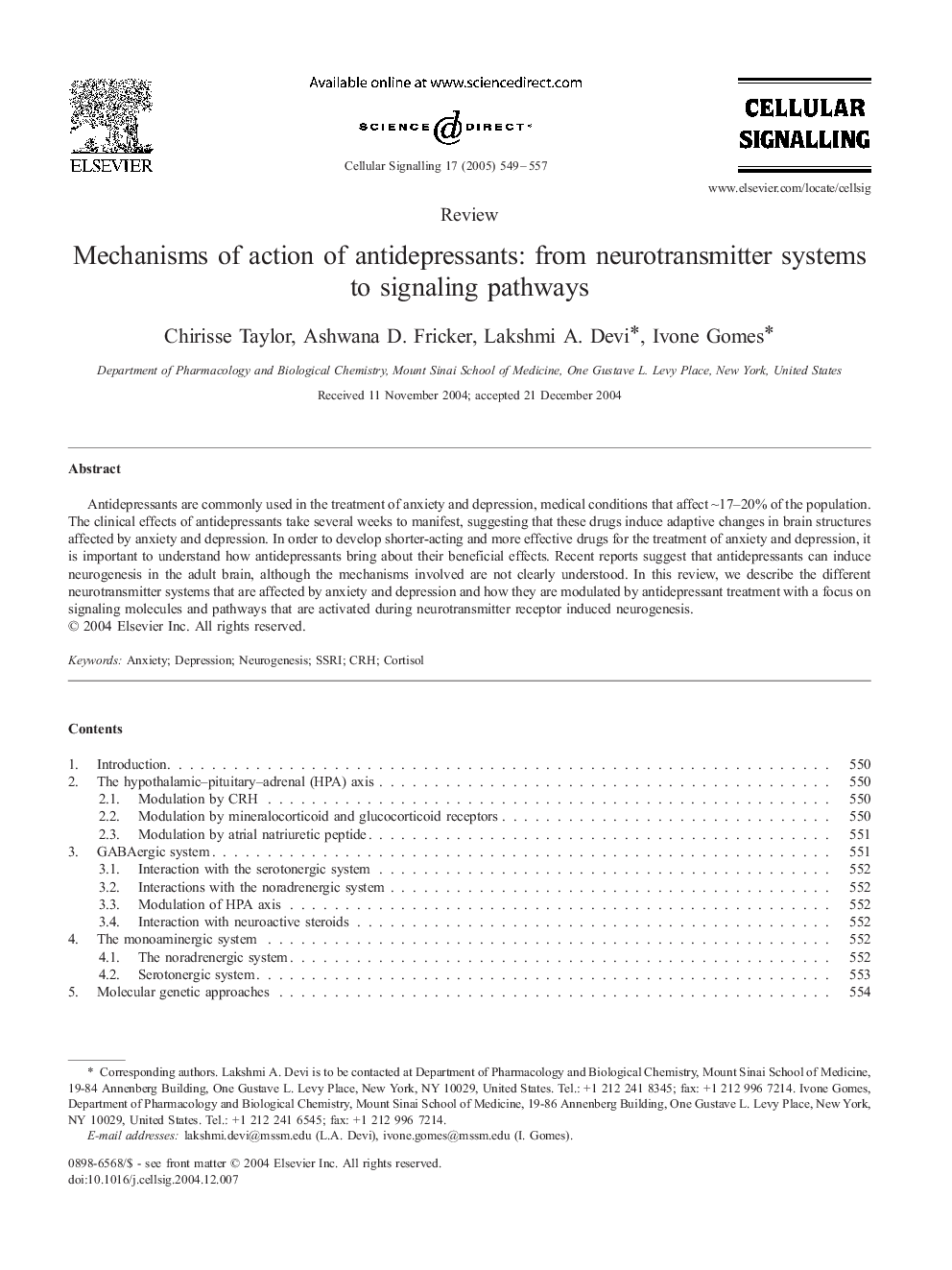| Article ID | Journal | Published Year | Pages | File Type |
|---|---|---|---|---|
| 10816525 | Cellular Signalling | 2005 | 9 Pages |
Abstract
Antidepressants are commonly used in the treatment of anxiety and depression, medical conditions that affect â¼17-20% of the population. The clinical effects of antidepressants take several weeks to manifest, suggesting that these drugs induce adaptive changes in brain structures affected by anxiety and depression. In order to develop shorter-acting and more effective drugs for the treatment of anxiety and depression, it is important to understand how antidepressants bring about their beneficial effects. Recent reports suggest that antidepressants can induce neurogenesis in the adult brain, although the mechanisms involved are not clearly understood. In this review, we describe the different neurotransmitter systems that are affected by anxiety and depression and how they are modulated by antidepressant treatment with a focus on signaling molecules and pathways that are activated during neurotransmitter receptor induced neurogenesis.
Related Topics
Life Sciences
Biochemistry, Genetics and Molecular Biology
Biochemistry
Authors
Chirisse Taylor, Ashwana D. Fricker, Lakshmi A. Devi, Ivone Gomes,
